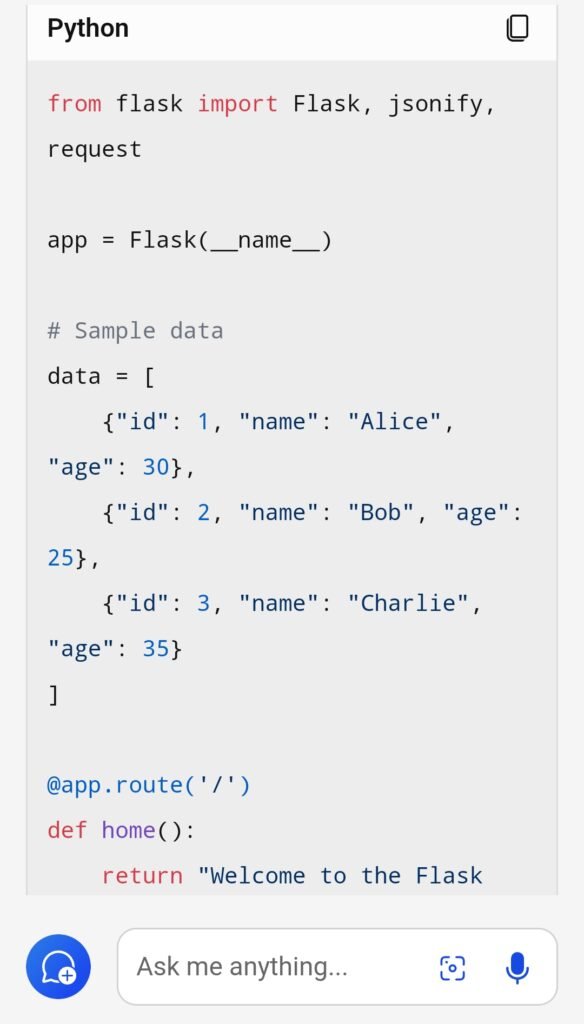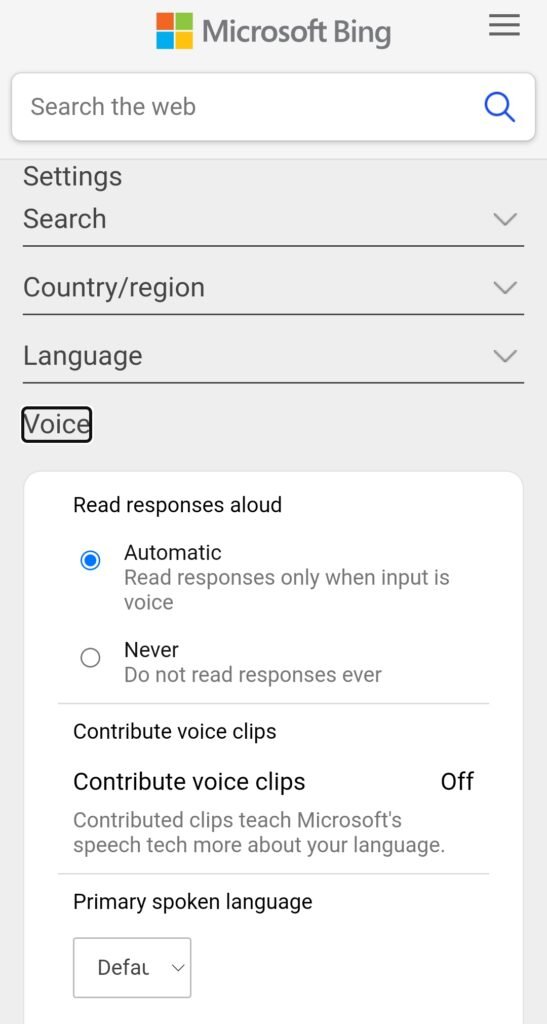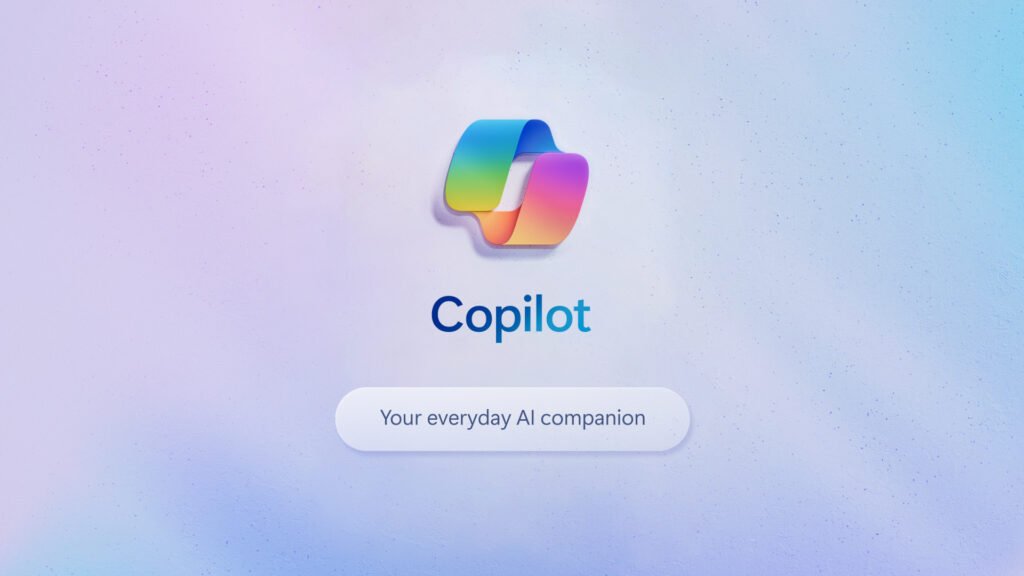Artificial intelligence (AI) is revolutionizing industries around the globe, and in the field of software development, Copilot AI is making waves. From writing code to providing real-time suggestions, Copilot AI, developed by GitHub and OpenAI, promises to boost productivity and reduce the complexity of development tasks. But what exactly is Copilot AI? How does it perform in different aspects, and is it the right tool for you? In this article, we will dive deep into everything you need to know about Copilot AI, comparing it across various important categories.
Read More
What is Copilot AI?
Copilot AI is an AI-powered tool designed to assist developers by suggesting code snippets, completing lines of code, and even generating entire blocks of code based on the context provided by the user. Built on OpenAI’s Codex model, it integrates directly with several popular development environments, making it accessible to a wide range of developers. Its goal is to help developers write code faster, with fewer errors, and reduce the need to look up syntax or functions.

Key Features of Copilot AI
Core Functionalities
At its core, Copilot AI offers developers assistance by predicting and suggesting code based on the context of what’s being written. Whether you’re stuck on a particular function or need a whole algorithm generated, Copilot AI steps in to offer solutions. Some of its core features include:
- Autocompleting lines or blocks of code
- Offering multiple suggestions to choose from
- Context-aware suggestions based on existing code
- Language support for popular programming languages like Python, JavaScript, and TypeScript
AI-Powered Capabilities
The AI engine behind Copilot AI is trained on massive datasets of publicly available code, which allows it to make highly accurate suggestions. Unlike traditional auto-completion tools, Copilot AI understands the logic and context of the code you’re writing, offering dynamic and intelligent suggestions in real time. This is especially useful for repetitive coding tasks and large-scale projects.
User Experience and Interface
Ease of Use
One of the most appealing aspects of Copilot AI is its user-friendly nature. Setting it up is straightforward—whether you’re using Visual Studio Code (VS Code) or JetBrains, the installation process takes only a few minutes. Once integrated, the interface is minimal and non-intrusive, offering suggestions without overwhelming the screen.
For beginners, Copilot AI can be a helpful mentor, guiding users through complex syntax and logic. Meanwhile, experienced developers can benefit from faster code generation and reduced manual coding.
Customization Options
Copilot AI also allows a certain degree of customization. Users can adjust preferences for how often suggestions appear or tweak the sensitivity of the AI’s predictions. Developers working in niche languages or frameworks can fine-tune Copilot AI to better suit their specific needs.

Productivity Boost with Copilot AI
How Copilot AI Enhances Productivity
The main promise of Copilot AI is the significant boost it gives to productivity. By automating repetitive tasks, like writing boilerplate code or filling in common syntax structures, developers can focus on more complex and creative aspects of their work. Imagine spending less time typing out mundane code and more time refining your project’s logic or design—Copilot AI makes this a reality.
Time Savings
Copilot AI can save hours of development time each week. For example, instead of manually writing a complex regular expression or boilerplate code, the tool can generate these for you in seconds. In larger projects, these time savings add up, allowing teams to hit deadlines faster and with fewer errors.
Integration with Development Tools
Compatibility with IDEs
Copilot AI is designed to work seamlessly with popular Integrated Development Environments (IDEs), making it a versatile tool. Currently, it supports:
- Visual Studio Code (VS Code)
- JetBrains IDEs (like IntelliJ IDEA, PyCharm)
- GitHub Repositories
These integrations mean that you can use Copilot AI across different platforms without interrupting your workflow. It works in real time, providing suggestions and code completions as you type, regardless of the IDE.
Cross-Platform Availability
While Copilot AI excels in environments like VS Code, it is also available across multiple platforms, including macOS, Windows, and Linux. This ensures that developers using different systems can enjoy the benefits of Copilot AI without compatibility issues.
Security and Privacy Concerns
Data Privacy in Copilot AI
One of the primary concerns for any AI-driven tool is how it handles data privacy. Copilot AI collects minimal data, focusing primarily on anonymized interactions to improve its model. GitHub also makes it clear in its privacy policy that your private code will not be used to train the AI.
Code Security and Compliance
There are legitimate concerns around AI-generated code. Copilot AI strives to produce safe, secure code, but developers must always verify the output, especially in sensitive or mission-critical applications. GitHub regularly updates the tool to address security vulnerabilities and stay compliant with industry standards.
Pricing and Subscription Models
Free vs Paid Versions
Copilot AI offers both free and paid versions. The free version is available for students and developers working on open-source projects, while the paid plan offers a wider range of features, including more accurate suggestions and priority support. The subscription costs are competitive compared to similar AI tools.
Value for Money
When comparing the price of Copilot AI to other development tools, it stands out for the level of intelligence it brings to coding assistance. For businesses, the time saved and the reduced error rates can justify the investment.
Customer Support and Documentation
Availability of Support Channels
Copilot AI provides several support options, including email and online forums. GitHub also maintains an active user community where developers can discuss issues or improvements. While response times vary, the support is generally well-regarded.
Documentation Quality
The documentation provided for Copilot AI is detailed and easy to follow. It includes guides for installation, setup, and troubleshooting, making it accessible even for developers with limited technical experience.
Collaboration Features
Team Collaboration Tools
Copilot AI is built with team collaboration in mind. It allows multiple developers to work on the same project while utilizing the AI’s suggestions. This is particularly useful for teams working remotely, as Copilot AI helps maintain consistency and speeds up collective coding efforts.
Project Management Integration
For those working in agile environments, Copilot AI integrates well with project management tools such as GitHub Projects, Jira, and Trello. This helps streamline workflows by ensuring that developers can focus on code while keeping track of project milestones.
Performance and Speed
Real-Time Response
In terms of performance, Copilot AI delivers near-instantaneous suggestions as you type. This real-time interaction makes it feel like a natural extension of your development environment rather than a third-party tool.
Accuracy and Efficiency
While Copilot AI is highly accurate, it’s not perfect. There are instances where the suggestions may not align with your intent. However, the ability to choose from multiple suggestions helps mitigate this issue, allowing you to select the most relevant option.
Use Cases and Industries Benefiting from Copilot AI
Developer Use Cases
For developers, Copilot AI is most beneficial in automating repetitive tasks, such as writing documentation or generating boilerplate code. It’s useful in both front-end and back-end development, and its support for multiple languages makes it versatile.
Other Industry Applications
Beyond software development, Copilot AI can also be applied in industries like marketing, content creation, and data analysis. Any task that requires repetitive, structured work can benefit from AI-driven suggestions, making it a powerful tool for non-developers as well.
Competitor Comparison
Copilot AI vs. Tabnine
Tabnine is another popular AI-driven coding assistant. While both tools offer similar functionality, Copilot AI stands out with its deeper integration into GitHub and its superior ability to understand context, offering more relevant code suggestions.
Copilot AI vs. Replit Ghostwriter
Replit Ghostwriter excels in environments where users need real-time collaboration and cloud-based development. However, Copilot AI offers better performance in local environments and has a broader range of supported languages.
Copilot AI vs. OpenAI Codex
Both Copilot AI and OpenAI Codex are built on the same underlying technology, but Copilot AI offers more practical, integrated solutions for everyday coding tasks, making it more accessible for a wider audience.
Click here to learn 11 powerful Chatgpt prompts
Future Prospects of Copilot AI
Ongoing Development
GitHub has plans to continue improving Copilot AI, with regular updates aimed at enhancing its predictive capabilities, expanding language support, and improving security features.
Industry Impact
As Copilot AI continues to evolve, it will play an essential role in the future of software development, particularly as the demand for automation grows. Its influence will likely expand into more industries beyond tech, further cementing its position as a leading AI assistant.
Conclusion
Copilot AI offers a unique blend of functionality, ease of use, and productivity enhancement. Its ability to integrate seamlessly into development environments makes it a powerful tool for both beginners and seasoned developers alike. While it may not be perfect, it is a game-changer for anyone looking to speed up their coding process and reduce errors. Overall, Copilot AI is well worth considering for anyone looking to take advantage of AI in their development workflow.
FAQs About Copilot AI
- What languages does Copilot AI support?
Copilot AI supports many popular programming languages, including Python, JavaScript, TypeScript, Ruby, and Go. - Is Copilot AI suitable for beginners in programming?
Yes, Copilot AI can be helpful for beginners by suggesting code and offering guidance, though some manual checking is still required. - Does Copilot AI work offline?
No, Copilot AI requires an internet connection to access its AI engine and provide suggestions. - Can Copilot AI replace a human developer?
No, Copilot AI is designed to assist, not replace, developers. It’s a tool to enhance productivity, not a substitute for human creativity and problem-solving. - How does Copilot AI ensure the security of my code?
GitHub ensures that your private code is not used for training the AI, and Copilot AI suggestions are anonymized to protect your data.
